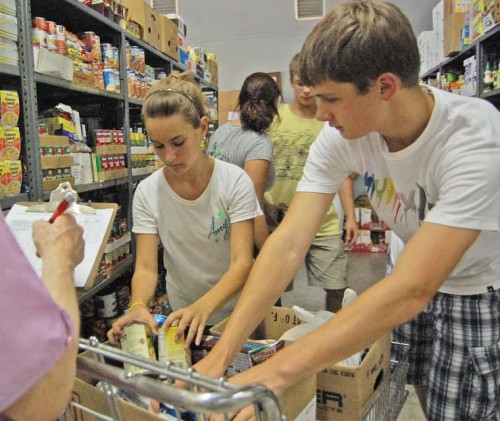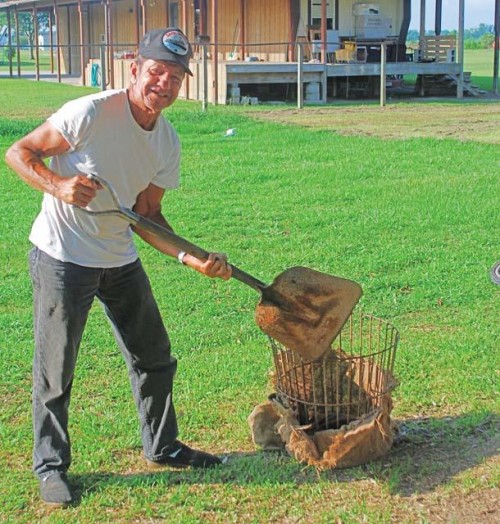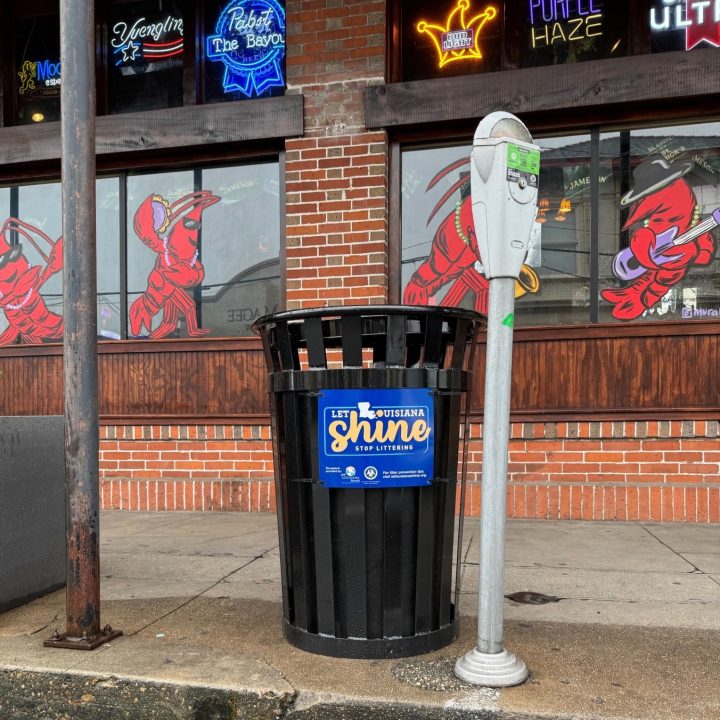
Food Banks Gear Up To Feed The Masses
June 17, 2010Tuesday, June 22
June 21, 2010Since the ancestors of Tri-parish residents docked their boats in the swamps of south Louisiana in late 1700s, fishing and hunting became the life-blood of Cajuns.
Without education or civilization, Cajuns had to find a way to survive on their own in this brave new world of wildlife and mosquitoes.
Fathers passed their skills down from generation to generation so posterity could provide food on the table – even if they had to remove a hook or bullets from their catch.
But as society becomes more modernized in the digital age, Cajun Louisiana is inching ever closer to the rest of Louisiana, as well as the rest of America.
These advances have provided a greater opportunity for Cajuns to broaden their horizons and create a better life for their families.
But with family being the key word – one thing still hasn’t changed in Acadiana, fathers passing down life lessons to their children.
Isle de Jean Charles native and Montegut resident Clifton “NoGo” Hendon has lived in both worlds and has adjusted to the changing times as both a father and a son.
The 63-year-old was raised on the water by his father Elie, learning how to curl oysters like a pro by age 10.
“He showed me how to fish, oysters and trawling. I’m grateful for that,” said NoGo. “He taught me everything that I know. I learned it all from him.”
But lessons weren’t the only thing Elie gave to NoGo.
“I got a little bit older, and he made me a boat,” said NoGo. “I started fishing for myself after.”
By age 13, NoGo was running his own boat separate from his father.
“At that time, we were catching oysters only in the wintertime. In the summertime, we were catching fish and crabs,” he said. “In my day, we had a long line and dipped line to catch the crabs.”
Applying the lessons his father taught, NoGo didn’t need fancy crab traps like fishermen use today in south Louisiana.
But another thing has changed as well.
The encroachment of American society on Cajuns has added opportunity and education to the pool of possibilities.
That’s why even though NoGo never spent a day in a school classroom, he urged his son and four daughters, as well as his grandchildren, to leave fishing behind and go to school to receive an education in order to get a job.
“I let them do their own thing,” said NoGo. “I was telling all my grandkids go to school so you can get a good job, because that fishing is no good.”
Although none of his children finished high school, they are all productive members of society.
“My son tried making oysters with me, but he said, ‘That’s too hard Daddy,’ so he went to the shipyard,” said NoGo.
Years of fishing have taken their toll on NoGo, causing him to recently retire from the industry, but in true fatherly fashion, why let his boat go to waste?
The elder Hendon is currently allowing his grandson Scotty Hendon to use his boat to skim oil through BP’s Vessels of Opportunity Program.
Although BP currently employs NoGo’s boat, the oil spill related closures of fishing waters disheartens the life-long fishermen greatly.
“Everything is shut down. There’s nothing we can do except see what’s going to happen,” said NoGo. “They’re paying for my boat, so that’s how we’re going to try to survive. It’s disappointing, because [fishermen] can’t work. They can’t go out there and do what they want to do.”
Luckily, NoGo can take solace in the fact that his fatherly advice kept his children and grandchildren out of the water in the face of this oil spill.
Clifton “NoGo” Hendon demonstrates how to shovel oysters into a bucket if he were out in the water. The 63-year-old began oystering with his father when he was 10 years old. * Photo by RICHARD FISCHER











